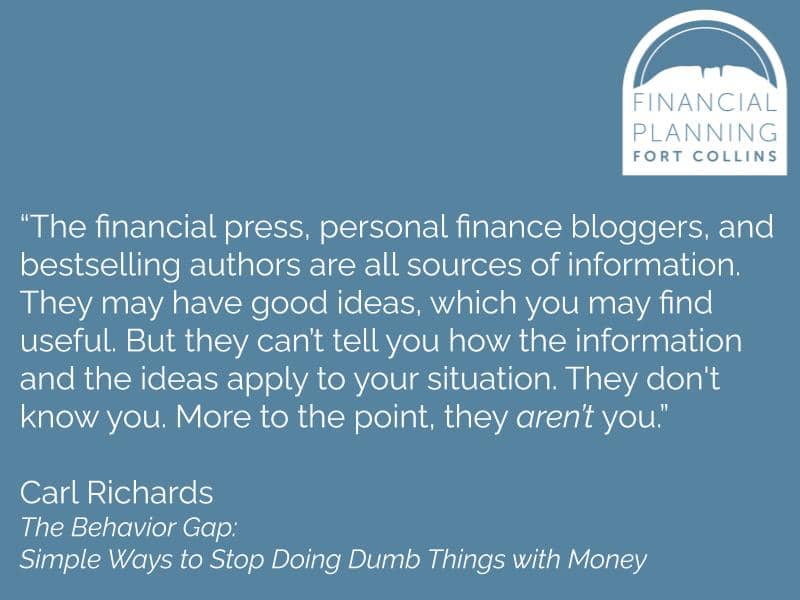
1. How do you plan to spend your time next month?
2. How will you control your exposure to information sources?
3. What strategies will you fall back on when you’re starting to panic?
You can’t predict the timing of market declines, natural disasters, or personal life curveballs. Yet we have a unique opportunity on the horizon. The upcoming presidential election may cause some chaos.
Investors don’t like uncertainty which can make the financial markets volatile — meaning sharp movements up-and-down. We have no idea what’s going to happen in November but you may have already noticed some companies preparing for a chaotic month.
The Wall Street Journal reported that Facebook Prepares Measures for Possible Election Unrest. Apparently Facebook is ready to deploy some internal tools to slow the spread of misinformation which can hopefully curb election-related violence. According to the article,
“… the tools could alter what tens of millions of Amercians see when they log onto the platform, diminishing their exposure to sensationalism, incitements to violence and misinformation…”
Facebook has created a plan. Have you?
The point of this article is to encourage you to remember that you created a plan when you decided to work with Financial Planning Fort Collins. Now, we hope to help you stay committed to your plan during times of uncertainty so you can calm the f(inancial) down when things seem crazy!
Make a Plan During Calm Times
We may be experiencing “a calm before the storm.” This is the perfect time to evaluate your current plan, take inventory on your current situation, and develop a plan if you need to make changes in the future.
To proactively plan may prevent you from making emotional decisions during times of uncertainty. We were happy that the majority of our clients didn’t panic when the COVID-19 market decline happened in spring of 2020 and we encourage you to take that same mindset. We don’t want you worrying about your financial future like many did about their toilet paper in early 2020.
▶︎ Question to Answer: What strategies will you fall back on when you’re starting to panic?
Ask yourself some questions when it comes to your long-term financial plan. By developing a risk management plan on how to proactively address moments of financial panic, you can prevent yourself making an emotional decision that may not serve your long-term financial self.
Here are some questions to ponder:
- If there’s a disruption to my income, do I have my emergency fund in order?
- How will I give myself permission to dip into my emergency fund during times of crisis instead of going into high-interest debt?
- With my investments, has there been a foreseeable long-lasting change to my personal risk tolerance and time horizon?
- What needs to happen for me to decide to change the course of my current financial strategy?
- If I find myself wanting to sell my investments because of the market’s uncertainty, how will I attempt to make a rational decision instead of an emotional decision?
- If I feel like I’m panicking because of my finances, what can I do to calm myself? Have I ever done something like this in the past? What did I learn from that experience?
We recommend addressing these questions and truly preparing. You have a limited amount of bandwidth available, and if you feel yourself stretched, you may make some decisions that could derail your financial plan.
Keep Your Eye on the Ball
You made financial goals and you can control your savings strategies, investment decisions, and spending habits. Remember to stay focused on your long-term self and to keep your eye on the ball.
As a simple exercise, how many times do you see the players in white pass the basketball?
Now, you can see that by focusing on your long-term financial goals, you may be able to drown out the noise in the background. Shift your attention to what you want to focus on instead of being pulled in the many directions of the media.▶︎ Question to Answer: How will you control your exposure to information sources?
This noise in the background can be the financial doomsday pundits on the news, articles predicting the markets’ directions, and what you should do since the world has permanently changed. All of this media commentary is designed to grab the attention of the masses. But how does all this news media benefit you?
 We’re confident that your plan consisted of a longer time horizon than November 2020, so let’s remain focused on your personal goals. No matter what the news media is saying, remember that the media doesn’t offer personalized guidance.
We’re confident that your plan consisted of a longer time horizon than November 2020, so let’s remain focused on your personal goals. No matter what the news media is saying, remember that the media doesn’t offer personalized guidance.
Make a plan on how you’ll intentionally choose to follow the news outlets that you trust and find beneficial while also unfollowing the information sources that heighten your anxiety.
Keep your eye on the ball — and ignore the gorilla!
Feel in Control
By working with us, you made a decision to chip away at many of your responsibilities and we hope to help you proactively plan for life curveballs. These curveballs include times of market turmoil. We may see some turmoil next month — or we may not. Yet the world may be a tad wonky either way.
▶︎ Question to Answer: How do you plan to spend your time next month?
Many people got sucked into the news cycles in early 2020 because things were so chaotic. Learn from that experience and remember how some rituals benefitted you and some rituals didn’t. Ask yourself some of these questions:
- Come up with some strategies on how you want to handle yourself if things seem crazy again. Do you want to only tune into the news once or twice a day?
- Do you need to uninstall some social media and/or news apps from your devices?
- Can you schedule times to discuss other areas of your life (not the news) with family or friends?
- When you find yourself committing too much emotional energy to things out of your control, what can you do to shift gears?
- What are you looking forward to in November, December, 2021, and beyond?
Remember how you want to spend your time, create a plan to spend your time this way, and find ways to remind yourself of how you want to spend your time. You only have so much time, treasure, and talent to give in a certain day, so try to make these resources worthwhile.
Again, we have no understanding or prediction on what may happen in the near-term. We could see the market skyrocket and shatter more all-time records day after day, or we enter a time of volatility after the presidential election, or things continue a similar rhythm without much change. Who the f(inancial) knows?
Yet you’re doing something to benefit yourself. You’re investing in yourself by creating the habit to proactively plan ahead for times of stress. And you’re committing to not allow financial stress add to stressful life events — events within or out of your control.
Take care of yourself, remain civil, and we hope you found this article helpful. Remember, ask yourself these questions so you can keep calm and carry on.
1. How do I plan to spend my time next month?
2. How will I control my exposure to information sources?
3. What strategies will I fall back on when I’m starting to panic?
